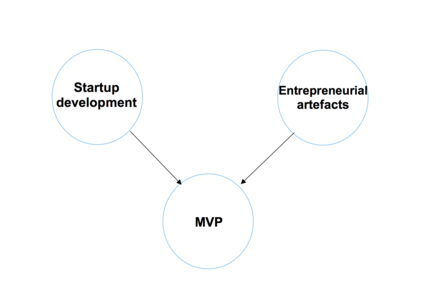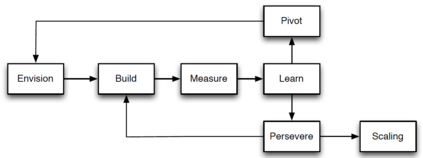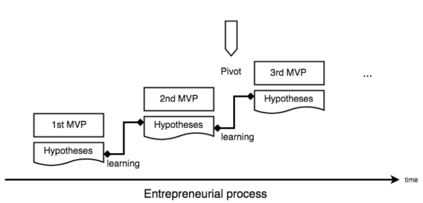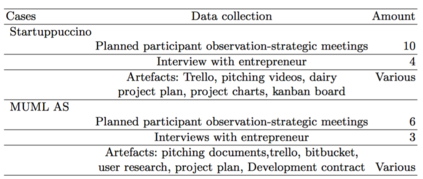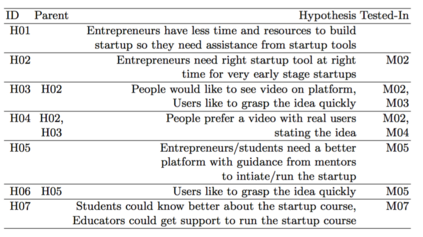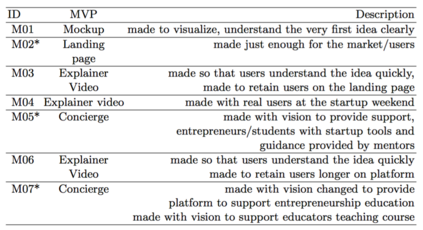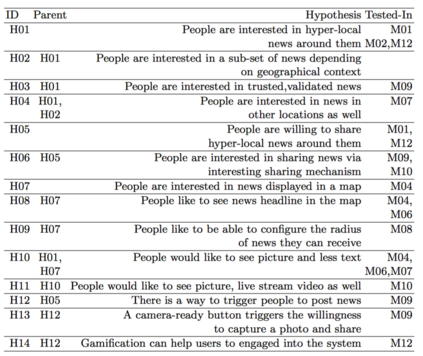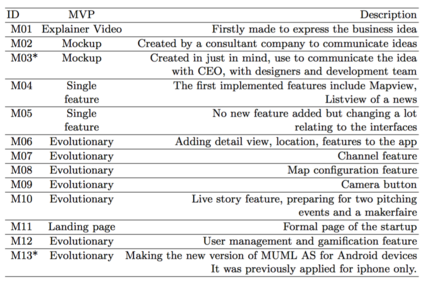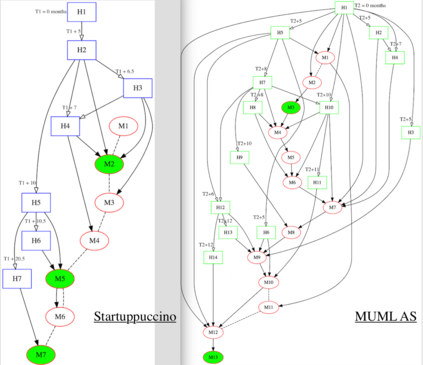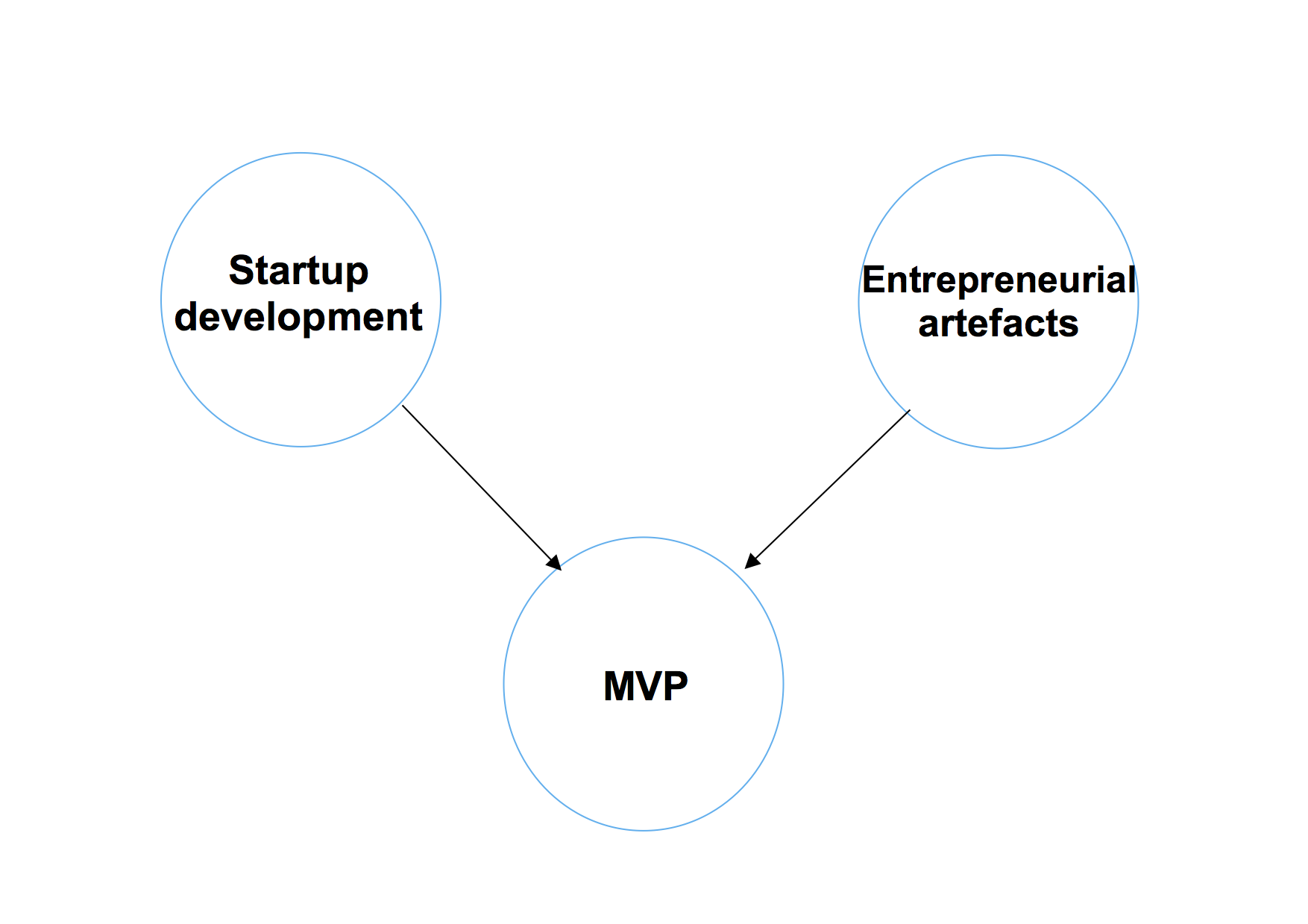Software startups have emerged as an interesting multiperspective research area. Inspired by Lean Startup, a startup journey can be viewed as a series of experiments that validate a set of business hypotheses an entrepreneurial team make explicitly or inexplicitly about their startup. It is little known about how startups evolve through business hypothesis testing. This study proposes a novel approach to look at the startup evolution as a Minimum Viable Product(MVP) creat- ing process. We identified relationships among business hypotheses and MVPs via ethnography and post-mortem analysis in two software star- tups. We observe that the relationship between hypotheses and MVPs is incomplete and non-linear in these two startups. We also find that entrepreneurs do learn from testing their hypotheses. However, there are hypotheses not tested by MVPs and vice versa, MVPs not related to any business hypothesis. The approach we proposed visualizes the flow of entrepreneurial knowledge across pivots via MVPs.
翻译:软件初始化已经成为一个有趣的多视角研究领域。 在Lean Startup的启发下, 启动旅程可以被视为一系列实验, 验证一套企业假设, 企业团队对创业的启动做出明确或不直白的假设。 关于新创业如何通过企业假设测试而演变, 我们对此知之甚少。 本研究提出了一种新颖的方法, 将启动进化看成一个最低可生存产品(MVP)的拐盘过程。 我们通过人种学和尸检分析发现企业假设和MVP之间的关系。 我们观察到, 假设和MVP在这两个新创业中的关系是不完整的和非线性。 我们还发现, 创业者确实从测试他们的假设中学习。 然而, 有一些没有被MVP和反之, MVP与任何商业假设都无关的假设。 我们提出的方法将企业知识通过MVPs的动态知识流进行视觉化。

